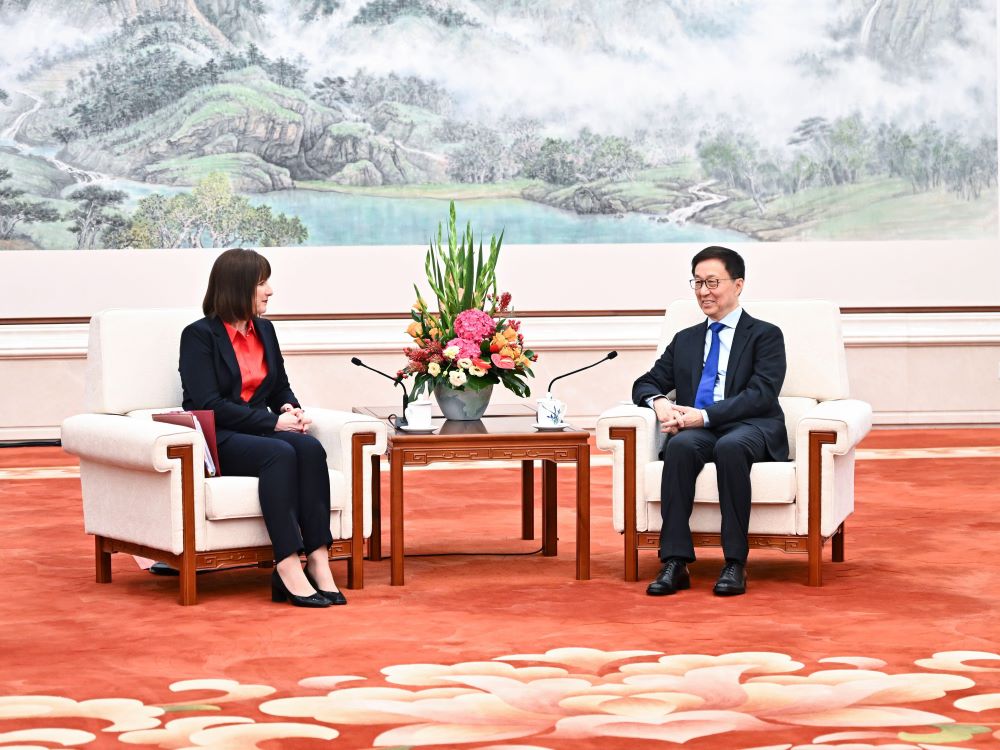Labour MP Says Current Law "Not Sufficient" To Stop Forced Labour Goods Entering UK
Labour MP Alex Sobel is a member of the Joint Committee on Human Rights (Alamy)
5 min read
A Labour MP has said that existing legislation to prevent forced labour in UK supply chains is “not sufficient”, as a new committee inquiry is set to examine whether a change to the law is needed.
Alex Sobel, Labour MP for Leeds Central and Headingley, and a member of the Joint Committee on Human Rights (JCHR), told PoliticsHome that forced labour continues to be a “very broad” issue across UK supply chains – particularly in the supply of cotton, manufactured goods, and commodities like cocoa, coffee and palm oil.
He said that the government should not sign trade agreements with countries that refuse to agree to human rights commitments.
"We're not going to raise human rights standards if we ignore it in trade," he said.
Starting next week, the JCHR – with members from both the Commons and the House of Lords – will start an inquiry to assess the effectiveness of the UK’s response to forced labour exploitation and its impact on UK supply chains.
“People are definitely becoming more aware of it,” Sobel said.
“Other jurisdictions, particularly the European Union, are legislating on it and the UK government as well is moving on this.”
In December, trade minister Douglas Alexander said that the government needed to “send a clear and unequivocal signal that no company in the United Kingdom that operates under the existing statutory framework should have any forced labour whatsoever in its supply chain”.
For Sobel, however, the existing legislation might not be enough.
“We've seen evidence from lots of NGOs and more anecdotally that the Modern Slavery Act 2015, which was world-leading when it was passed in 2015, is still not sufficient in terms of us being confident that goods with forced labor in their supply chain are not entering the UK market.
“It's not unusual if an act has been in place for 10 years for it to be reviewed by select committees. The 10-year marker is also important.”
Sobel suggested that there has been a lack of political will in the last few years to refresh the legislation.
“On an issue like forced slavery, you need a prime minister or business secretary who are very committed and very interested in this area,” he said, pointing to former Tory prime minister Theresa May as the last example of a leader before Keir Starmer who was committed to the topic.
In Sobel’s view, the responsibility for preventing the sale of forced labour goods in the UK needs to lie with the government and businesses rather than with the consumer.
“I very strongly believe that it shouldn't be up to the consumer,” he said.
“The consumer can't go and research every product and work out every ethical aspect of it.
“It's in the companies’ interests to have high ethical standards on forced labor and modern slavery, because it is a risk to their business having that in their supply chain.”
 Chancellor Rachel Reeves meets counterpart Chinese Vice President Han Zheng in Beijing (Alamy)
Chancellor Rachel Reeves meets counterpart Chinese Vice President Han Zheng in Beijing (Alamy)
In the past few weeks, senior government ministers have made visits to strengthen international trade – including chancellor Rachel Reeves’ visit to China and industry minister Sarah Jones’ trip to Saudi Arabia to sign a partnership on critical minerals. Both these countries are connected with a high prevalence of forced labour.
There have been numerous reports that Chinese authorities are subjecting Uyghur Muslims to forced labour under government programmes, with evidence emerging that goods originating from this labour end up in UK and EU markets. Earlier this month, a lawyer for Chinese retail company Shein refused to ask questions from MPs about the risk of forced labour in its cotton supply chain.
Saudi Arabia was placed at number four in the Global Slavery Index of countries by the international human rights group Walk Free.
Sobel said it was therefore important that the government ensures any new trade deals are “robust” and agreed on the condition that “things like modern slavery are not baked into those deals”.
“What's absolutely vital is when trade deals are negotiated and signed, that there are strong ethical provisions in those trade deals, including around forced labour and respect of human rights.
“If the other country that we're negotiating with refuses or is not interested in incorporating them, then I don't think the UK should be signing those trade agreements. We're not going to raise human rights standards if we ignore it in trade.”
While Sobel said he did not know enough about the details of the new critical minerals partnership with Saudi Arabia, he will submit a parliamentary question to probe whether human rights considerations were sufficiently addressed.
The JCHR inquiry will also look into the government’s procurement practices, including concerns around NHS procurement of goods connected to forced labour. In December 2023, a government review identified 21 per cent of NHS suppliers as being at high risk of exposure to modern slavery, and a consultation has since been launched which will also be pursued in the inquiry.
Committee members will also consider the powers and resources granted to bodies that are tasked with dealing with goods connected with forced labour, such as the Anti-Slavery Commissioner, National Crime Agency, and Border Force.
The inquiry will take evidence from next week, including from current and former ministers, and is expected to report its findings to the government in the spring.
